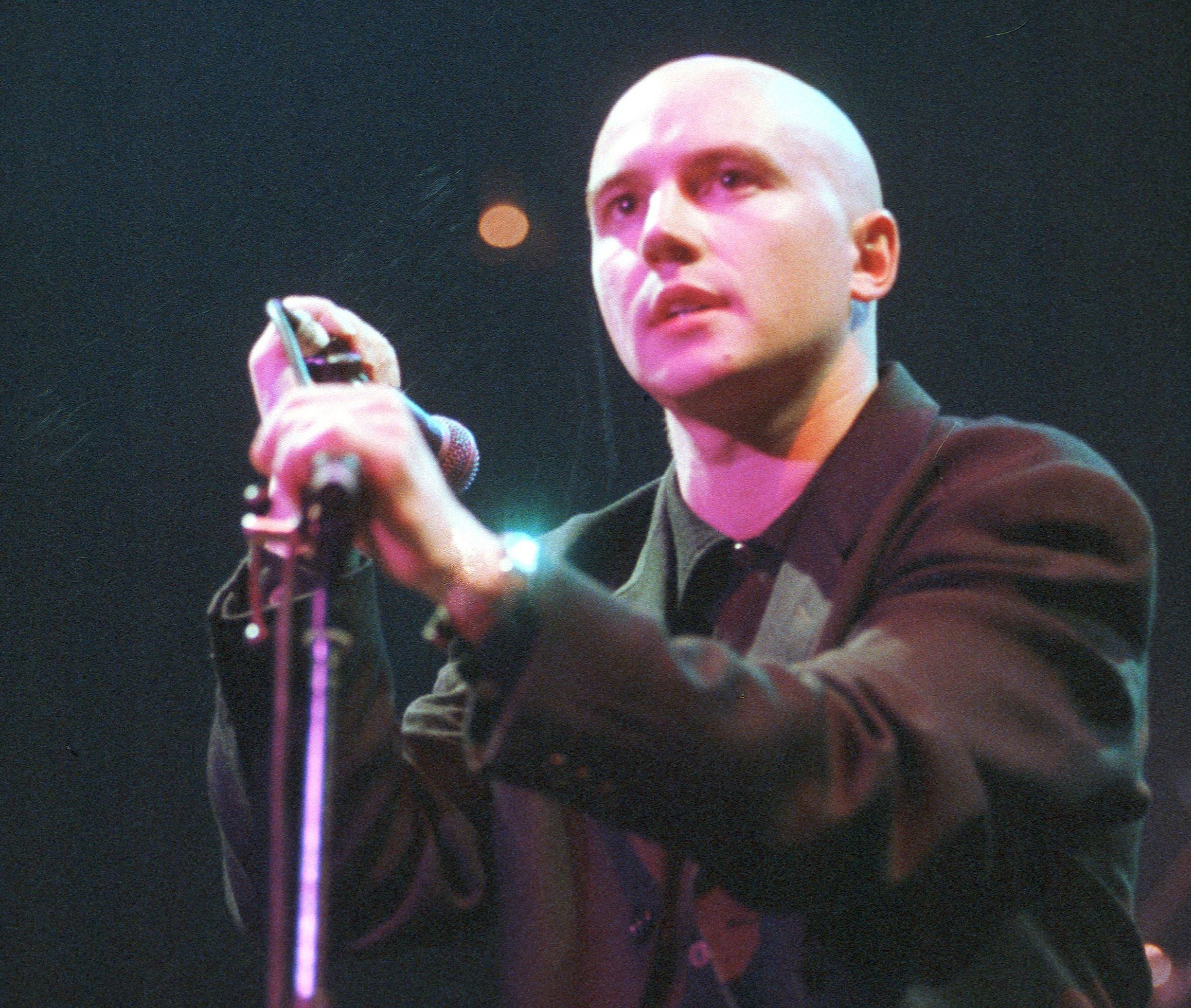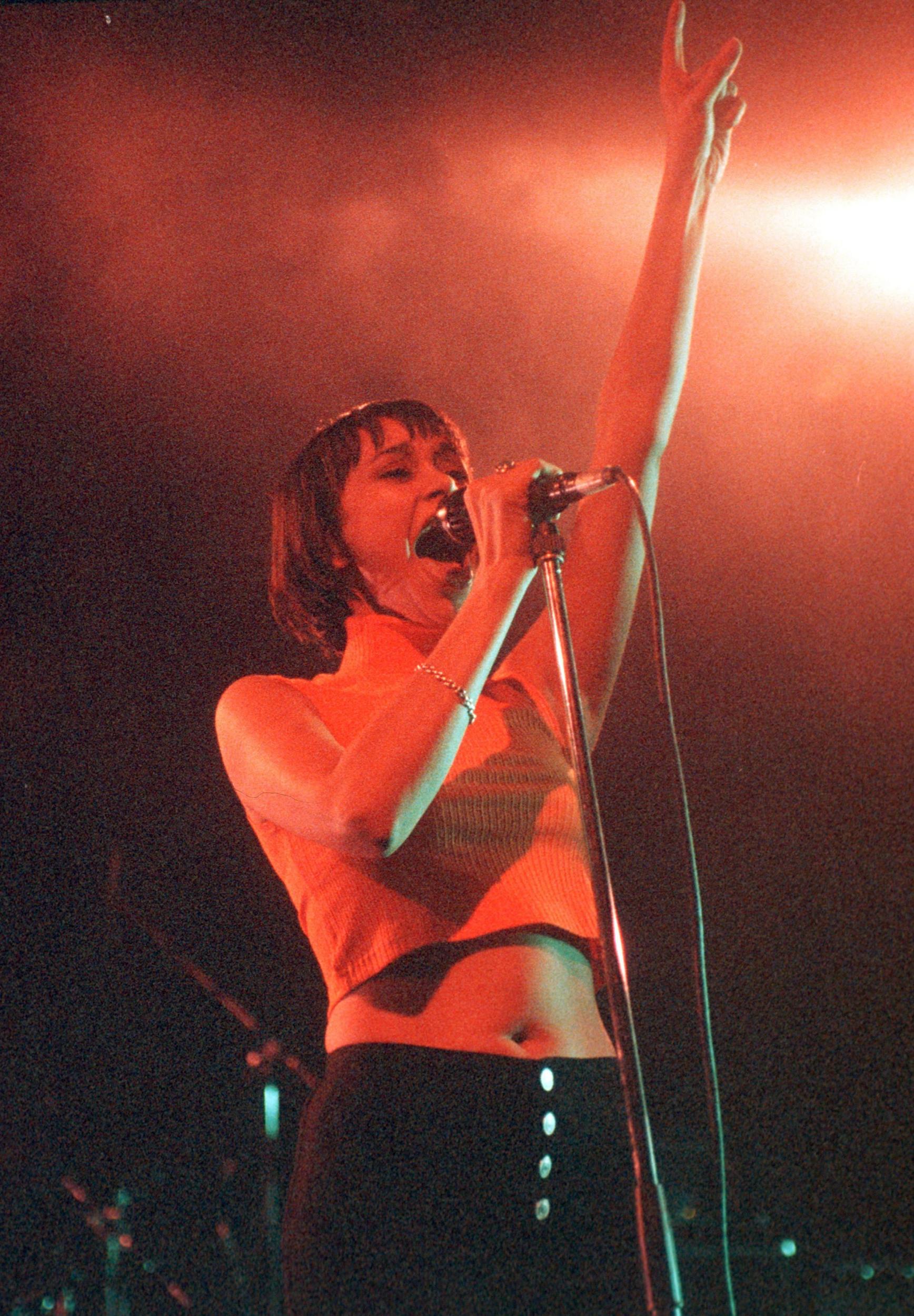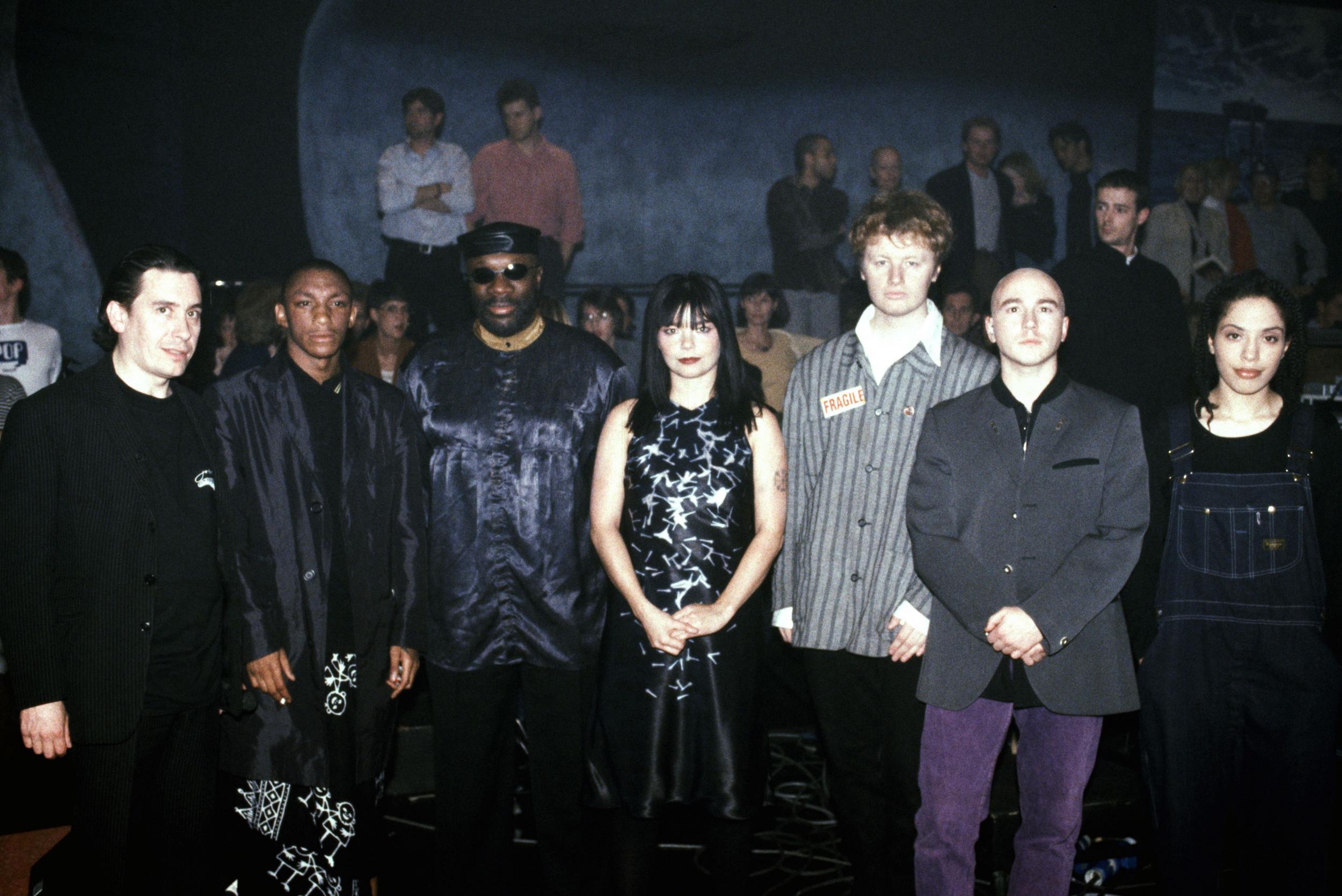Cocaine and Michael Caine: Whatever happened to the Britpop B-listers?
For one summer 25 years ago, it was hard not to feel something special was happening. Speaking to some of the bands who were there from the very beginning – including The Boo Radleys and Echobelly – Ed Power explores the definitive starting point of an era that brought us Blur, Elbow and Elastica

Your support helps us to tell the story
From reproductive rights to climate change to Big Tech, The Independent is on the ground when the story is developing. Whether it's investigating the financials of Elon Musk's pro-Trump PAC or producing our latest documentary, 'The A Word', which shines a light on the American women fighting for reproductive rights, we know how important it is to parse out the facts from the messaging.
At such a critical moment in US history, we need reporters on the ground. Your donation allows us to keep sending journalists to speak to both sides of the story.
The Independent is trusted by Americans across the entire political spectrum. And unlike many other quality news outlets, we choose not to lock Americans out of our reporting and analysis with paywalls. We believe quality journalism should be available to everyone, paid for by those who can afford it.
Your support makes all the difference.It was when it became all about cocaine and Michael Caine that Simon “Sice” Rowbottom knew he was done with Britpop.
“The whole thing of going out and getting coked off your face and talking s*** wasn’t really my thing,” says the former Boo Radleys’ frontman, recalling his glory days as a chart-topping rocker. “The film Get Carter [a geezer-ish Seventies caper starring Caine] was a touchstone. We preferred the pub. At least you can have an intelligent conversation there.”
Summer 1995 represented a brief shining moment when Britpop seemed a good idea. Soon afterwards, as Rowbottom intimates, it would all turn to sawdust and faded Union Jacks. Good bands would be replaced by terrible bands. Even the good bands started putting out terrible albums. But for a stretch of months 25 years ago, it was hard not to feel something special was happening. The weather was lovely too, which always helps.
As with every significant historical event, the Summer of Britpop has a start and end point. Clearly, the full stop came on 11 September 1995. That was the day Blur released the soulless and sneering The Great Escape – a plastic pop parody quickly blown off the road by the bulldozing Beatles pastiche that was Oasis’s (What’s the Story) Morning Glory?.
The starting point, if less well remembered today, is just as definitive. It was on 9 March 1995 when Rowbottom and his Boo Radleys bandmates went on Top of the Pops for the first time and belted out their brash and breezy new single, “Wake Up Boo!” Three weeks later, the one-time indie underdogs from the Wirral would put out the companion record, Wake Up! And a few weeks after that, on 8 April, the album would achieve the previously unthinkable and reach number one. Outside of Oasis it is one of the few LPs released by Alan McGee’s Creation Records to top the charts.
Primal Scream’s more iconic Screamadelica, for instance, fizzled out at number seven. The Boo Radleys had gone where no scrappy indie ensemble had gone before. They even gained an unlikely cheerleader in breakfast DJ and Most Annoying Person from the Nineties, Chris Evans, who repurposed “Wake Up Boo!” as his personal jingle.
“It feel like a different life,” says 50-year-old Rowbottom. It might as well be, considering he is now a successful counsellor and psychotherapist based in Oxfordshire. Bassist Tim Brown teaches IT at St Louis Grammar School in Kilkeel, County Down, while Rob Cieka went on to have success as drummer for hire. Only Martin Carr, the group’s songwriter and spirit animal, continues to pursue a career as a pop writer, though with nowhere near the impact of The Boo Radleys.
“The whole Britpop thing was taking off and we unintentionally found ourselves part of it,” says Rowbottom. “It happened that way for a lot of bands. We had set out to make a pop album. It was almost coincidental that it happened at a time when English or British bands would have been embraced far more.”
Britpop’s winners and losers are obvious. Among the former are Blur, Oasis, Pulp, Suede, Elastica and Supergrass. The latter includes early casualties such as empty-suited rockers Menswear, who seemed to fall apart five minutes after they had formed. But then there is that vast middle ground of groups who initially appeared to do well out of the scene and the media attention, only for it all to unravel. Examples include Echobelly, fronted by the charismatic Sonya Madan (Echobelly reformed in 2009 and continue to tour and record).

“Every astute person knows that to ride the wave will give them much more momentum than if they were not part of it, whatever they admit to in retrospect,” Madan says by email, before recounting the time Echobelly fan Morrissey called around to her flat and bonded with her cat (also named Morrissey). “Britpop was no exception and nearly every band at the time tried very hard to jump on that wave. The music press was single-minded about writing about it. If you were not included, you were ignored. Which meant: no press, no interest, no TV, no record deal... equals death.
“Media-wise, it was immediate, sensationalistic, narcissistic and slogan-led. It was only in the aftermath, that [Britpop] became almost a dirty word. At the time, some bands would have sold their souls to be part of it. And the ones that were, played into the media’s insatiable appetite for a ‘story’.”
“To say it was all contrived would not be true,” she adds. “There was genuine band rivalry, especially if you were put into the same category as a band you considered to be musically inferior. The media certainly pushed the buttons though and stoked the fires out of proportion. The Blur/Oasis rivalry story will forever be in every Britpop article.”
“I didn’t like the term Britpop,” adds Leon Meya of Northern Uproar, one of the post-Oasis outfits championed by the NME and Melody Maker. “I was more of a guy thinking we were in a rock band but we went along with it.”
Northern Uproar would burn brightly but then suffer as Britpop fell from favour in the late Nineties. The band has since reformed, though Meya also performs solo. His management’s website sings his praises as “fantastic for any events from weddings to corporate functions”.
”It happened very quick soon as we started to gig in and around Manchester. It was clear four or five record labels wanted us to sign us. We went with Heavenly Records as they were relevant and were on the right page as us. The music press were great with us at the beginning, but then became two-faced and some became negative. But being young we had no idea of that.”
In that in-between place, you also found The Boo Radleys. “We thought ‘Wake Up Boo!’ was a good song,” says Rowbottom. “Our attitude was, ‘We’ll do it and move on.’ We didn’t think it would end up defining what we did. That it would be the high point. And the point at which things started to go down.”
The Boo Radleys, named after a character in To Kill a Mocking Bird, weren’t averse to success. For a time they openly pursued it. They’d been a pet project of Creation Records founder Alan McGee. At least until his head was turned by another north of England band with an us-against-the world outlook, but with more of a propensity for on-stage punch-ups (yes, Oasis). Moreover, their LP before Wake Up!, 1993’s Giant Steps, had been hugely acclaimed.

“Giant Steps won awards and all those things,” says Rowbottom. “It sold very little on the back of that. Quite a few singles were released. None broke the Top 40. They released Lazarus twice with different videos. It stalled at 41. That was at that weird moment when everyone wanted to get into the charts. We were swept along with that a little bit. We were like ‘well why isn’t that happening to us?’ We wanted Top of the Pops, we wanted the Radio 1 airplay. We were surprised when it actually happened. Up to that point it just hadn’t.”
They almost bottled it, he says. Carr wrote “Wake Up Boo!” after taking magic mushrooms and staying up the entire night at his girlfriend’s flat in Preston. He was still downstairs on the settee, eyes like TV screens tuned to the test-card, when she got up for work.
The golden sunlight crept in and he had a moment of epiphany. “Wake up… it’s a beautiful morning.” But that’s all it was, a moment. Immediately afterwards, he crumpled in a heap and began to snore. Chris Evans’s number one life-affirming anthem was inspired by drugs, insomnia and just a hint of sunshine through the blinds.
Carr would later become hugely self-conscious about “Wake Up Boo!”, cringing at lyrics such as “Twenty-five, don’t recall a time I felt this alive”. On tour, The Boo Radleys would place it high in the setlist, as Nirvana did with “Smells Like Teen Spirit”. Best get it out of the way and push on.
They weren’t alone in their ambivalence about Britpop and their part in it. Many of its perceived pioneers and cheerleaders had a similar response.
“Historically you can see the first Suede album as also the first Britpop album,” Suede’s Brett Anderson told once told me. “We initiated it. And I was kind of offered this thing – ‘do you want to wave a Union Jack and pretend to be this boring Carry On Figure, going on about corduroy trousers and fish and chips and stuff like that?’ That never appealed to me.
“I was writing about my life. And my life happened to be led as a poor white person in London,” he said. “I was brought up on Haywards Heath in a council house. I wrote about the world I saw around me. That world happened to British. It was never a celebration of British culture. It was a criticism if anything. I was raised a member of the working class. I wasn’t a privileged member of the middle class pretending to be poorer than I was.”
“It was a competitive time,” reminisced Louise Wener of Sleeper of her Britpop years when the band released a comeback LP last year (in her time away, she had embarked on a second career as a novelist). “That was something you weren’t really allowed to discuss,“ she told the i newspaper, ”because you had to pretend you were indie and hip and didn’t care about chart positions or sales. But the biggest people in that world were obsessed with these things. You are constantly aware that it can all slip through your fingers at any second, which of course it did.”
“[Menswear] looked fantastic, they had a very strong image, they hung out at the right places,” is how Matt Everett, now a BBC 6 Music presenter and producer, remembered his time as drummer with the aforementioned rockers in an interview in 2010. “We should probably have spent more time writing better songs… It all happened very easily, very quickly…Menswear have become the shorthand for a band that gets ridiculously hyped and then disappears and weren’t very good in hindsight. It’s nice to be that kind of footnote. To quote Jon Bon Jovi, ‘I’d rather go out in a blaze of glory’.”
Still, early in 1995, all that lay in the future. When Carr brought “Wake Up Boo!” to his bandmates, they knew it was special. The first time they set about putting it on tape, however, they instinctively shied away from its pop qualities. Early recordings were drenched in reverb, so that you could hear the melody but only just. The Boo Radleys were embarrassed about being catchy.
“It was almost as if we were bottling it a little bit,” says Rowbottom. “We realised, ‘This needs to be pure pop’. When we did it, people seemed happy. But one of the strange things about us is that we were always huge fans of pop. Me and Martin were huge chart lovers from an early age. When you’re 10 or 11 you’re not into The Velvet Underground. We loved The Human League, Duran Duran, Depeche Mode.”
Rowbottom and Carr had by then left the Wirral behind and were living in London. They spent much of their time at Creation’s tumbledown HQ on Primrose Hill. They also frequented Britpop ground zero of Camden, where the notorious Good Mixer – a dive bar without the irony – had become watering hole of choice for scenesters.
“The weird thing was that Britpop wasn’t necessarily the bands,” says Rowbottom. “The way I remember it, it was more about the people who surrounded the bands. There were a lot of marketing people about, PR people, the record companies.”
Everything would change, at Creation especially, as Liam and Noel Gallagher swaggered into the picture. Early on, though, the scene was relatively carefree and innocent.
“We did the lifestyle,” says Rowbottom. “You’d go down to Creation for a meeting and you’d always end up in the pub. We used to hang out with people who worked in the record company and with journalists. We didn’t mix with a lot of other bands. One of the things that bothers me about that era is that there was a lot of dumbing down. I don’t remember having a lot of intelligent conversations, really.”
It was dawning on the Boos that Britpop wasn’t all about The Kinks and Martin Amis and Beatles harmonies. There was also the rise of the faux working-class “Mockney” accent and, later, an embrace of football hooligan yobbishness. Britpop was about to enter its “Loaded” phase.
Creation, meanwhile, was becoming more about cocaine and Get Carter than chats about books in the pub. “Creation’s story follows a similar trajectory to ours,” says Rowbottom. “They were a very down-at-heel indie, doing their own thing and releasing quite experimental records but with ambitions to be massive. When they got it, they realised they didn’t actually like it.
The before-and-after moment, he says, was the weekend of 10-11 August 1996, when Oasis played to a combined audience of 250,000 at Knebworth in Hertfordshire. “At that point Creation was a huge record company. We were getting limos picking up all the artists, driving them door-to-door. Backstage at Knebworth, there was a huge Creation tent where all the alcohol was free. It went entirely downhill. We stopped going down to the offices.
“They basically had put bouncers on the door. You used to be able to wander in and have a chat. Now it was security and paparazzi outside. Alan McGee had had his breakdown. And when he come back, although he revelled in Oasis success, he wasn’t particularly comfortable with it because he wasn’t particularly involved.”
Backlashes were the order of the day. The Boo Radleys’ came soon enough. In September 1996, with the dust still settling from Knebworth, they released the follow-up to Wake Up! C’mon Kids was a weird, challenging record, stuffed with rockers but also with off-kilter psychedelic pop. It confused their new audience even as older fans realised they couldn’t quite forgive the Boo Radleys for their success. It stopped being fun and by the time of their final album, 1998’s Kingsize, they had already decided to call it quits.
“C’mon Kids felt like our White Album,” says Rowbottom. “But the narrative was that it was almost wilfully destructive. We were never going to come out with Wake Up! part two. If we’d brought out C’mon Kids after Giant Steps it would have been applauded as a work of genius. I don’t think we knew who we were and I don’t think other people knew who we were, either. The funny thing is that, if that was happening now, we’d probably just take a break. Back then that wasn’t our understanding of what bands did. For us, bands split up and they meant it. We had this understanding that when it’s over it’s over.”

When he looks back today, he feels that, as natural underdogs, The Boo Radleys weren’t cut out for stardom. It was a familiar complaint, also made by peers such as Pulp’s Jarvis Cocker and Elastica’s Justine Frischmann. Success was fun – but only for a while. And then it became the most hollow experience imaginable.
“The first time we did Top of the Pops it was just fantastic,” says Rowbottom, who started playing live again last year and is working on new material with former Boo’s bandmates Brown and Cieka.
“The third time I was just so bored. You’re basically standing around, rehearsing, waiting. Jon Bon Jovi was on the same episode as us. I remember looking at him thinking, ‘Jesus Christ this guy has been doing it for years. He’s done it over and over and he still loves it’. And I remember thinking, ‘you’re a different kind of animal’. It was the same with Oasis. Alan McGee would say: ‘They want it and they mean it when they say they want it.’ When we got it, we didn’t want it. We didn’t like being part of the crowd.”
Join our commenting forum
Join thought-provoking conversations, follow other Independent readers and see their replies
Comments